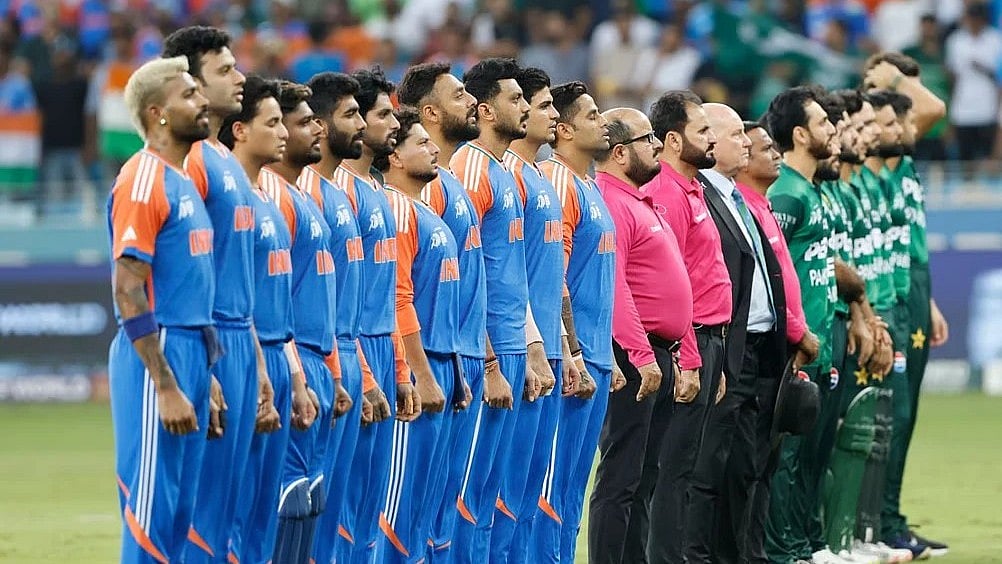The Shiv Sena leadership is reportedly upset over the Nationalist Congress Party’s (NCP) alleged soft corner for the Bharatiya Janata Party (BJP). There have been a series of instances when the NCP leaders showed reluctance to criticise the BJP. It is not that they have been saying hallelujah to the BJP. What is noteworthy is that the vehemence with which the Shiv Sena leaders criticise the BJP is in sharp contrast to the lackadaisical manner in which the NCP leaders respond. There have also been instances of the BJP leaders criticising government policy while giving a clean chit to the NCP ministers. The Home Department is held by the NCP and two of its ministers are in jail. Yet, some sort of a bonhomie exists between the NCP and the BJP. Unless this misunderstanding is removed without delay, the stability of the Maharashtra Vikas Aghadi (MVA) government will be in question. This problem can be solved if Chief Minister Uddhav Thackeray and NCP leader Sharad Pawar take the initiative. They alone have the necessary clout to keep their followers under control. Allowance must also be made for the fact that the BJP and the NCP had formed an 80-hour government which failed only because it did not get enough time to engineer defections and convert its minority status into majority status. Politics is considered the art of the possible and if people think that the two parties do not want to rule out the possibility of coming together in the foreseeable future, they can’t be faulted. Ideologically, the BJP is the closest to the Shiv Sena. Yet, they cannot come together because each party considers itself the superior entity in Maharashtra. Politics, especially practical politics, is difficult to comprehend when so many factors like personal equations and ideological underpinnings, too, play a role. While appreciating the Shiv Sena’s complaint, one should not forget another trend in Indian politics. Opposition parties are generally reluctant to criticise the BJP. During the last five years when the Yogi Adityanath government was in power in UP, the main Opposition parties, namely the Samajwadi Party and the Bahujan Samaj Party, were not found questioning the government, be it on Hathras, the harsh manner in which the anti-citizenship law protestors were dealt with and the vigorous manner in which the anti-cow slaughter law was implemented. The Samajwadi Party became active only a few months before the election was due. The BSP did not even campaign properly so much so that it ended up with one seat against the two the Congress secured. One has to conclude that these parties were scared of taking on the BJP because it could harass their leaders on one pretext or another. Unlike its predecessor, the Modi government never showed any reluctance to use Central agencies like the CBI and the Enforcement Directorate to target leaders they wanted to harass.
At the national level, only some leaders of Congress have been actively campaigning against the BJP policies. The Aam Aadmi Party, which is seemingly opposed to the BJP, has been supporting all its policies be it on vivisection of Jammu and Kashmir or abrogation of Article 370, or the new citizenship policy. In the recent elections in UP, the AAP did not contest, whereas it contested in Uttarakhand and Goa to indirectly benefit the BJP. Why single out the AAP, no regional party or Left party has shown the courage of conviction to challenge the BJP. A CPM parliamentarian from Kerala was seen pleading with the BJP government to support its dream SilverLine project because the BJP is supposed to be a party that supports mega projects. The BJP has a problem with the Trinamool Congress in West Bengal but the latter went out of the way to Goa to make the BJP victory easier. In Punjab, the Akali Dal lost its credentials when it aligned with the BJP and supported the farm laws till the protest from the farmers became impossible to ignore.
It is in this context that the growing marginalisation of Congress at the national level should be seen. It is not for no reason that the BJP wants a Congress-mukt Bharat because it knows that smaller and regional parties are easier to be controlled than the Congress which still has its roots in all the states and regions. However, the disappearance of the Congress from the national scene is not in the interest of polity, as underscored by Union Minister for Transport Nitin Gadkari when he said that a strong Congress is vital for democracy in India. Democracy is all about letting the people choose their leaders. If they are not happy with one set, they should be able to choose another set the next time. In such a scenario, slogans like Congress-mukt Bharat are disingenuous, to say the least.




